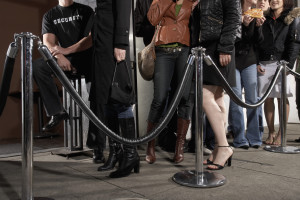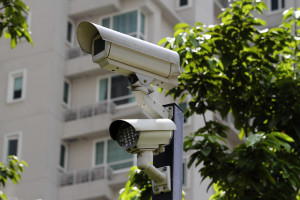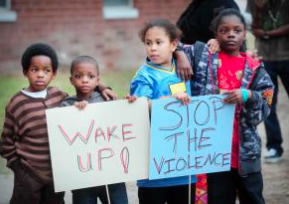
Following a spree of violent nightclub crime, which resulted in the death of two young women, the NYPD has formulated a set of best practices “in order to guide the nightlife industry in making itself more accountable and preventing the kind of crime and disorder problems that bring it into conflict with law enforcement agencies.”
The Murray Law Firm represents many victims and families who have been devastated by nightclub violence. It is our hope that nightclub owners and managers across the country will collaborate with their local police departments to implement the security measures and training necessary to deter crime and protect their patrons. We have highlighted some of the NYPD’s best nightclub security practices below.
Nightclub Owners: NYPD Nightclub Security Best Practices
- There should be a minimum of one licensed and trained security guard in every premise when 75 or more patrons are present at the same time. For larger premises, there should be one such security guard for every 75 club patrons present. Discretion should be used by management to determine the appropriate number of security based on the event or crowd to ensure safety and lawfulness.
- Security guards should be trained in techniques to de-escalate potential violent encounters and difficult situations.
- Establishment policy should mandate that security personnel separate and remove all potentially violent patrons in a manner consistent with the law in order to prevent a continuation of violent activity inside or outside the club. Establishments must call 9-1-1 to report criminal activity and may call 9-1-1 or otherwise notify police for assistance in these circumstances.
- It is recommended that security guards be distinctively and uniformly attired–that is very easily identified.
- It is recommended that security guards be distributed evenly throughout the establishment and not just at the door.
- It is recommended that properly working and maintained digital cameras be mounted in front of the establishment (both inside and outside), at all entry doors, and outside the bathroom doors.
- It is helpful to learn if all of these efforts are working. To that end, establishments should hire an independent security consultant to ensure club security and to see that the establishment is adhering to other laws and policies, including laws prohibiting sales to minors.
- Establishments should ensure that levels of lighting inside and outside the establishment are sufficient for observation by security.
- All those awaiting admission should be placed in a line that does not block the sidewalk. All individuals in admission lines should be informed that if they are not orderly, they will not be admitted. Individuals who will not be admitted should be encouraged to leave the area.
- At closing, security should ensure orderliness when patrons are exiting the establishment.
- If metal detectors are used, every patron should be subjected to magnetometer searches in accordance with establishment policy. VIPs, DJs, entourages, and so on should not receive special treatment.
- Spot checks of employees should be conducted to ensure compliance with establishment policies and applicable laws and rules, including integrity tests for false IDs and underage sales.
- The use of ID scanning machines is strongly recommended. Although they do not reject legal IDs used by other individuals, nor are they foolproof in rejecting fake IDs, they are extremely helpful in recording who is entering the establishment.
- Establishments should not admit anyone under 21, except for establishments operating primarily as restaurants during those hours in which meals are served.
- If bottle purchases are allowed, establishments should not admit anyone under 21. Establishments must take sufficient steps to ensure that tables are closely monitored to prevent underage drinking or overconsumption.
Read All 60 NYPD Best Nightclub Security Practices: Formulating Best Practices for Nightlife Establishments
Police & Nightclub Owner Collaboration
Many local law enforcement agencies provide workshops and training seminars for nightclub owners, managers and staff. Nightclub owners should connect with their local police department to enroll in, or help create, a nightclub security and safety training program.
Victims of Nightclub Violence
By law, nightclub owners and managers are required to protect all patrons legally on the premises from any foreseeable harm. Should a nightclub owner or manager fail in this legal duty, victims and their families may elect to pursue a legal for any injuries or wrongful deaths, which occurred as a consequence. Under such claims, the victims may be entitled to an award of damages that could include, among other items, substantial monetary compensation for: pain and suffering; past and future medical expenses; loss of wages and future earning capacity; disfigurement; and, emotional distress.
Photographs and a thorough inspection of the scene will need to be performed on behalf of the victim immediately before any evidence, such as register receipts or surveillance footage, may be destroyed. As such, it is imperative victims speak with an experienced premises liability firm immediately to ensure their interests are protected.
We are here to Help. Contact us for a Free Consultation.
The Murray Law Firm has extensive and successful experience in representing victims of nightclub violence and security negligence in and we offer our legal expertise, if desired. Anyone seeking further information or legal representation is encouraged to contact us at 888.842.1616. Consultations are free and confidential.
Choosing the Right Attorney
Selecting the right attorney for you or your family is highly important. You must feel confident that the attorney you hire has a complete understanding of the law applicable to your particular case, and has successful experience in handling such cases.
Important: Do not hire a lawyer who has violated the Rules of Professional Conduct!!!
You should not hire an attorney who calls you or visits you unsolicited, or anyone that contacts you directly to offer legal services. This activity is strictly prohibited by Rule 7.3 of the American Bar Association (ABA) Model Rules of Professional Conduct, which states as follows:
 A LAWYER “SHALL NOT” CONTACT A PROSPECTIVE CLIENT THROUGH A “LIVE TELEPHONE” OR AN “IN-PERSON” VISIT.
A LAWYER “SHALL NOT” CONTACT A PROSPECTIVE CLIENT THROUGH A “LIVE TELEPHONE” OR AN “IN-PERSON” VISIT.
– RULE 7.3, ABA MODEL RULES OF PROFESSIONAL CONDUCT.
If an attorney, or someone acting on behalf of an attorney, contacts you in this manner, that attorney is in violation of this Rule. This unethical and unprofessional activity on the part of the lawyer is good sign that you should stay away. It is imperative that you are represented by an attorney who is capable of advocating for you within the confines of the law, and an attorney who fails to abide by the Rules of Professional Conduct is probably not the best fit. In fact, any such attorney should be immediately reported to the local State Bar Association. If you have been contacted in such an unsolicited manner, contact us and we’ll assist you in filing a report.

Contingency Fees Disclaimer: “Contingent attorneys’ fees refers only to those fees charged by attorneys for their legal services. Such fees are not permitted in all types of cases. Court costs and other additional expenses of legal action usually must be paid by the client.”
 Georgia Legal Report
Georgia Legal Report



 A Jefferson City Police Apartment Security & Safety report warns, “There are some criminals who prey specifically upon apartments and condominiums….You should be aware of, and periodically review, the security and safety of your apartment and apartment building.
A Jefferson City Police Apartment Security & Safety report warns, “There are some criminals who prey specifically upon apartments and condominiums….You should be aware of, and periodically review, the security and safety of your apartment and apartment building.